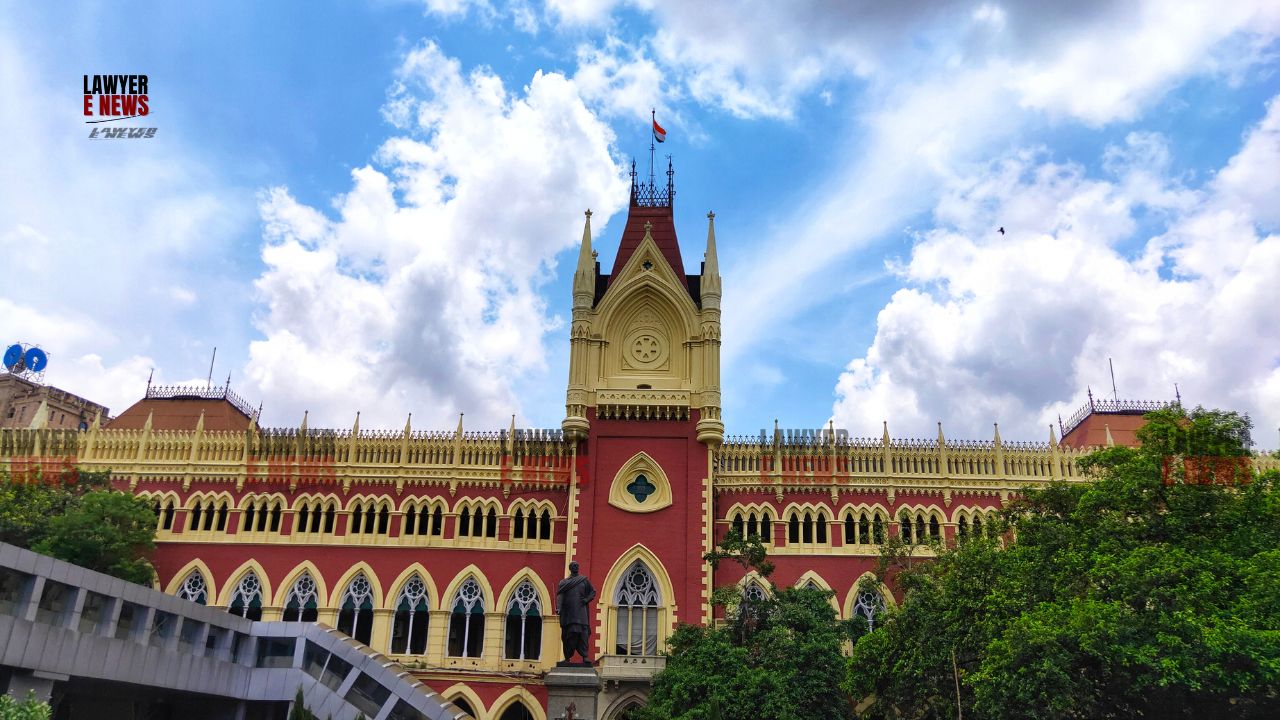-
by Admin
15 February 2026 5:35 AM



On September 24, 2024, the Calcutta High Court, in Ramkrishna Saha & Others v. Rajkumar Saha (F.A. No. 185 of 2015 and F.A.T. No. 302 of 2015), adjudicated two appeals challenging probate granted to two competing wills of Monilal Saha. The court overturned the probate of a 1993 will citing “serious suspicious circumstances,” while dismissing a 1995 will for lack of authenticity. Both the trial court’s findings were modified, with one will voided and the other rejected as unreliable.
The case originated from a family dispute over the validity of two separate wills of Monilal Saha, who passed away in 1996. Monilal had left behind three sons and three daughters along with significant properties, including a hotel. Two probate proceedings were initiated—one for a will dated June 11, 1993, filed by his son Rajkumar Saha, and another for a will dated February 3, 1995, submitted by his daughter Kalpana Saha. The trial court had granted probate for the 1993 will while dismissing the petition for the 1995 will.
The appellants, Ramkrishna Saha and others, challenged the probate of the 1993 will, arguing that it contained false declarations about Monilal’s wife, who was alive at the time but declared deceased in the will. Kalpana Saha, meanwhile, contested the 1993 will, claiming that Monilal had revoked it and executed a new will in 1995.
The central legal issues involved the validity, execution, and revocation of the two wills, as well as the presence of suspicious circumstances. The court examined the application of Section 276 of the Indian Succession Act, 1925, and relevant procedural rules under the Code of Civil Procedure (Order 41 Rule 27). The focus was on the execution and attestation requirements under Section 68 of the Indian Evidence Act, 1872, and Section 63 of the Indian Succession Act.
The appellants argued that the 1993 will was forged, pointing to several discrepancies, including the will’s false statement that Monilal’s wife had already died when, in fact, she lived until 1994. They contended that Monilal himself had revoked the 1993 will due to this error and executed a new will in 1995.
Conversely, the respondent, Rajkumar Saha, defended the 1993 will, asserting that it had been properly executed in compliance with legal standards, as attested by witnesses. He also argued that the 1995 will was a forgery, manufactured by Kalpana Saha to disinherit the sons of the testator.
The court found that while the execution of the 1993 will had been technically proven, the suspicious circumstances surrounding it could not be ignored. The most glaring issue was the fact that the will declared Monilal’s wife as dead at the time of its execution, when she was very much alive. The court noted that this “creates serious doubts about the genuineness of the will,” observing that Monilal’s failure to provide for his wife in the will further compounded the suspicions.
“When a will declares the testator’s wife dead, though she is alive, this unexplained inaccuracy strikes at the very credibility of the document. No satisfactory explanation has been provided to dispel this abnormality.”
The court was also unpersuaded by the appellants' claim regarding the 1995 will. It found discrepancies in the signatures and overwriting in the document, ruling that the 1995 will was not credible enough to warrant a grant of probate. The court upheld the trial court’s rejection of Kalpana Saha’s probate application, agreeing that the will did not meet the legal standards of authenticity.
The High Court further declined the appellants’ application under Order 41 Rule 27 CPC to introduce additional evidence regarding the testator’s wife’s death and the testator’s signature, stating that it was unnecessary given the already established facts.
The Calcutta High Court set aside the probate of the 1993 will, citing strong suspicions regarding its execution, particularly the false declaration about the testator’s wife. The court also rejected the 1995 will as forged and unreliable, affirming the trial court’s dismissal of Kalpana Saha’s claim. Both wills were ultimately voided, leaving the matter of Monilal Saha’s estate unresolved.
Date of Decision: September 24, 2024
Ramkrishna Saha & Others v. Rajkumar Saha
